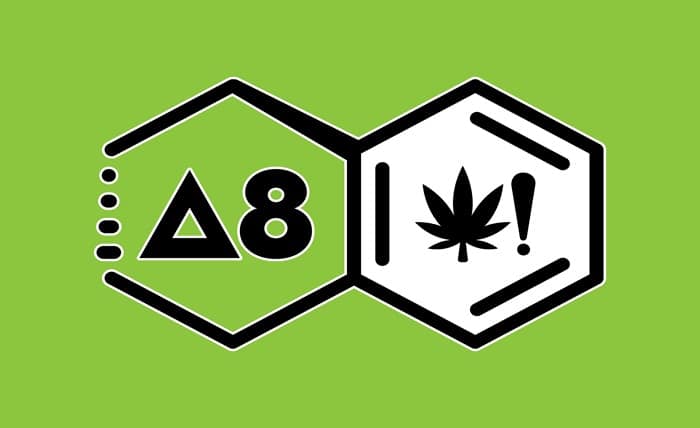The Science Behind Delta 8 products: Insights

As the cannabis industry continues to evolve, Delta 8 products have emerged as a notable and intriguing segment. Delta 8 THC (Delta-8-tetrahydrocannabinol) is gaining popularity for its unique properties and potential benefits, distinct from its more well-known counterpart, Delta 9 THC. To understand why Delta 8 products are making waves in the wellness and recreational markets, it’s essential to delve into the science behind them. This article provides insights into the chemistry, effects, and therapeutic potential of Delta 8 products.
Understanding Delta 8 THC
Delta 8 THC is a cannabinoid found in the cannabis plant, albeit in much smaller quantities compared to Delta 9 THC. Chemically, Delta 8 THC is similar to Delta 9 THC, with only a slight difference in the molecular structure—specifically, the position of a double bond. This minor variation results in significantly different effects on the human body and mind.
The Chemistry of Delta 8
The primary distinction between Delta 8 and Delta 9 THC lies in the location of the double bond on the carbon chain. Delta 9 THC has this double bond on the ninth carbon atom, while Delta 8 has it on the eighth. This difference alters the interaction of Delta 8 with the endocannabinoid system (ECS), particularly with the CB1 receptors located in the central nervous system.
CB1 receptors are primarily responsible for the psychoactive effects of THC. Delta 8 binds to these receptors, but with a lower affinity than Delta 9 THC, leading to a milder psychoactive effect. This makes Delta 8 an attractive option for individuals seeking the benefits of THC without the intense high associated with Delta 9.
Effects and Benefits of Delta 8 Products
Psychoactive Effects
Delta 8 THC is often described as providing a smoother, more clear-headed high compared to Delta 9 THC. Users report experiencing feelings of euphoria, relaxation, and heightened sensory perception without the anxiety or paranoia that can sometimes accompany Delta 9 THC consumption. This makes Delta 8 products appealing for those who are sensitive to the stronger psychoactive effects of traditional THC.
Therapeutic Potential
Emerging research and anecdotal evidence suggest that Delta 8 THC may offer several therapeutic benefits:
- Pain Relief: Delta 8 has analgesic properties, making it effective in managing chronic pain. It interacts with the body’s pain receptors, potentially reducing the perception of pain.
- Anti-Anxiety: Due to its milder psychoactive effects, Delta 8 may help alleviate anxiety and stress without causing the overwhelming sensations that Delta 9 THC can induce.
- Anti-Inflammatory: Delta 8 exhibits anti-inflammatory properties, which can be beneficial for conditions characterized by inflammation, such as arthritis.
- Appetite Stimulation: Similar to Delta 9, Delta 8 THC can stimulate appetite, making it useful for individuals dealing with appetite loss due to medical treatments or conditions.
- Neuroprotective Properties: Some studies indicate that Delta 8 THC may have neuroprotective properties, helping to protect brain cells and improve cognitive function. This could have implications for conditions like Alzheimer’s disease and other neurodegenerative disorders.
Legal Status and Safety
The legal status of Delta 8 THC is complex and varies by region. In the United States, the 2018 Farm Bill legalized hemp-derived cannabinoids, provided they contain less than 0.3% Delta 9 THC. Since Delta 8 can be derived from hemp, it falls into a legal gray area. However, some states have specifically banned Delta 8 THC, so it’s crucial for consumers to be aware of local regulations.
Regarding safety, Delta 8 THC is generally considered safe when used responsibly. However, as with any cannabinoid, it can have side effects, including dry mouth, red eyes, and dizziness. Because Delta 8 products are relatively new, long-term studies on their safety and efficacy are limited. Consumers should approach these products with caution, start with lower doses, and consult healthcare professionals if they have underlying health conditions or are taking other medications.
The Future of Delta 8 Products
As interest in Delta 8 products continues to grow, so does the need for further research and regulatory clarity. Scientists are exploring the full spectrum of Delta 8’s potential benefits and risks, which will provide a more comprehensive understanding of its effects. Additionally, the market is seeing an increase in the variety and availability of Delta 8 products, including edibles, tinctures, vapes, and more.
Innovation within the industry is likely to lead to more refined and targeted Delta 8 products, enhancing their appeal and effectiveness for both medicinal and recreational users. As the science advances, consumers can expect more reliable and potent formulations designed to meet specific needs and preferences.
Conclusion
Delta 8 products represent a fascinating development in the world of cannabis, offering a unique profile of effects and benefits. Understanding the science behind Delta 8 THC helps illuminate why these products are gaining popularity and how they differ from traditional THC options. With ongoing research and evolving regulations, Delta 8 has the potential to become a significant player in the wellness and recreational cannabis markets. As always, consumers should stay informed and make educated choices to safely enjoy the advantages that Delta 8 products can offer.




